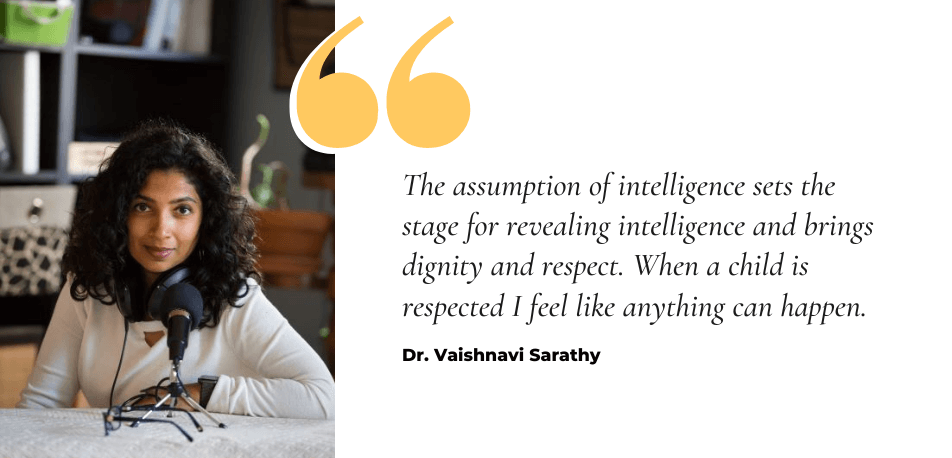Sound nutrition and equal education are the birthrights of every child.
This is the rallying call that today’s guest Dr. Vaishnavi Sarathy bases her life’s work – confronting the false belief that children with disabilities are incompetent.
She rightly believes that when we bring dignity and respect to all children, regardless of their assumed level of intelligence, anything can happen.
For this first episode in National Autism Awareness Month, I am excited to share my conversation with Dr. Sarathy about the assumption of competence placed on children with disabilities.
Are the assumptions we have about children with disabilities impeding their healing process? Are these assumptions blocking access to the support and resources that most of us take for granted?
It’s an important question and one that Dr. Sarathy addresses beautifully.
Dr. Sarathy is a chemist turned teacher and functional nutrition practitioner focused on children with disabilities, especially Down syndrome and autism.
She is also the host of Functional Nutrition and Learning for Kids, a weekly podcast about out-of-the-box learning and nutrition ideas for kids with down syndrome and autism.
Her TEDx talk, Who Decides How Smart You Are, has been hailed as mindblowing and eye-opening. Practitioners and parents alike have attributed 180-degree changes in their attitude towards working with kids with Down syndrome and autism to conversations with Dr. Sarathy.
Her perspective is shaped by her 13-year-old son Sid who has Down syndrome and autism, is non-speaking, and is slowly carving his space as a poet in the neurodivergent space.
This conversation is a passionate and moving call to action that is not to be missed.
Listen to the full episode to hear:
- The history of Assumption of Competence and how it differs from Assumption of Intelligence
- How assumption of competence is an important foundation for children to feel comfortable in their own bodies
- How posturing towards children impacts them more than we know
- The internal stressors children with disabilities deal with every day–stressors that most of us are completely unaware of!
- How reframing care can help parents and practitioners






